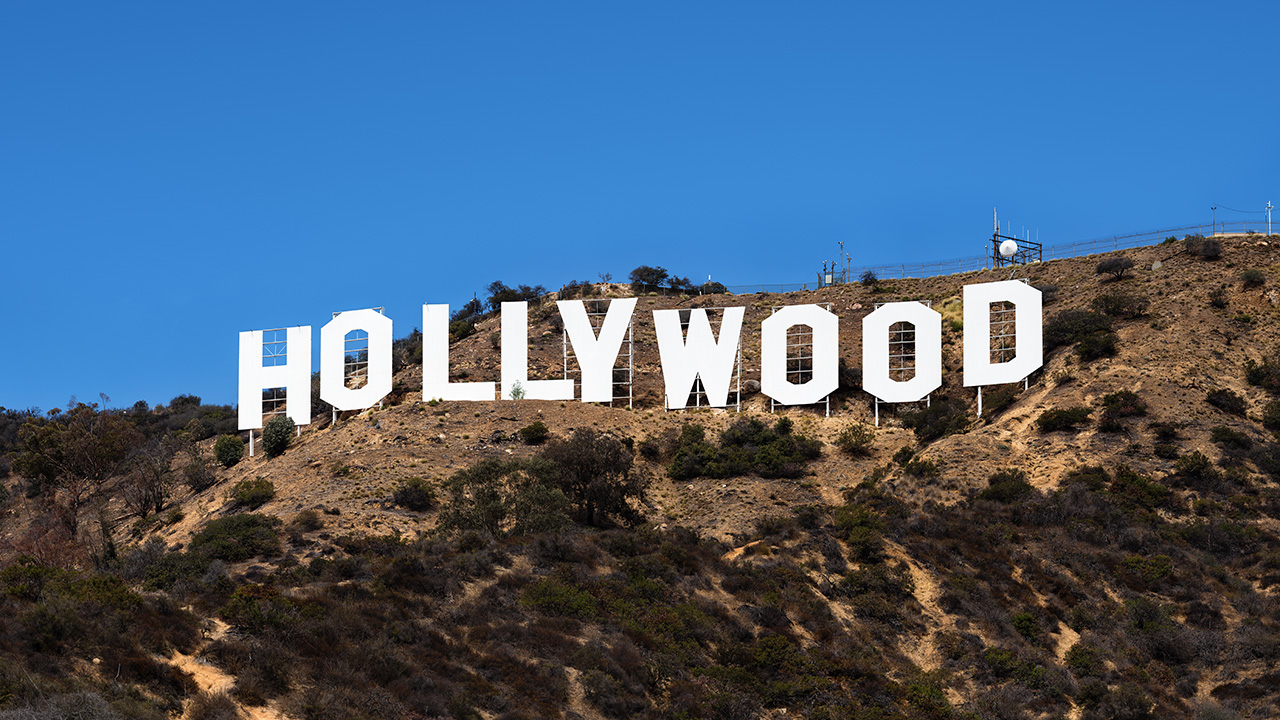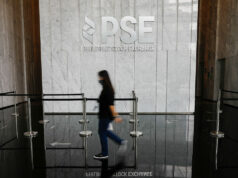Aussiewood to Mel Gibson: Save us from Trump’s movie tariffs

SYDNEY/GOLD COAST, Australia — Australia’s film industry wants actor Mel Gibson to do what he does in his action-hero movies and save the day, by convincing US President Donald J. Trump to drop his film tariffs which could devastate its A$1 billion ($650 million) Hollywood business.
This as the UK says discussions are underway with US officials, and one of the world’s biggest movie-making centers, Bollywood, frets over the news.
Australian industry leaders said the tariffs would cause a large number of job losses in the local film production sector, drive up ticket prices, and called for US-born Mr. Gibson, who launched his career in Australia, to use his role as a Trump adviser to urge the president to reconsider.
In January, Mr. Trump hired Mr. Gibson as a “special ambassador” to Hollywood although he didn’t elaborate on his role.
“Hopefully Mel Gibson, as one of Trump’s advisers in this space, is telling the President that this is a dumb idea,” Kate Carnell, chair of industry body Screen Producers Australia, said in an interview.
Mr. Gibson plans to shoot a movie in Italy this year, according to industry media, which could be impacted by the US tariffs.
“For Mel Gibson to make his movie in Italy and then to have a 100% tariff for it to be shown in America is just nonsensical,” said Ms. Carnell.
Mr. Trump on Sunday announced a 100% tariff on movies produced outside the US, saying the American movie industry was dying a “very fast death” due to the incentives that other countries were offering to lure filmmakers.
Mr. Trump’s latest tariff announcement bewildered studio executives who for decades have overseen productions across several continents and could not understand how it would work. It also sent shockwaves through film industries abroad where Hollywood shoots movies for cheaper production costs.
AUSTRALIAN FILM INDUSTRY AT RISK
Since the first Star Wars prequels and Matrix sequels were shot in Sydney in the early 2000s with the Australian dollar near a record-low against the US dollar, Australia’s film industry has become enmeshed with Hollywood.
International spending on film and television productions in Australia was about half the industry’s total A$1.7 billion expenditure in 2024, says Screen Australia, a government body, which noted the overall figure fell 29% since the prior year partly due to a Hollywood writers’ strike.
“One hundred percent tariffs would be devastating for the Australian film industry… we’re talking about a lot of jobs (lost), hard to put a number on them,” Ms. Carnell said, adding Australia’s US film business was worth around A$1 billion. “People are saying, ‘how could they do this? It’s so stupid.’”
Ms. Carnell said if Hollywood studios spent more shooting all movies in the US, “their costs would go up, and so the costs to consumers, to people who see movies, would go up as well.”
Kate Marks, chief executive officer (CEO) of Ausfilm, which connects international studios with Australia, said the US had a “long and mutually beneficial history” of collaborating on films with Australia.
“We are closely monitoring the situation and awaiting further details and will continue to work with our industry and government partners,” she said.
In the state of Queensland, home to Village Roadshow Studios where Marvel’s Thor: Ragnarok and Warner Bros’ Aquaman were shot, the state’s screen agency said the industry was “globally connected” and involved collaboration with national and international partners.
“The proposed US film tariff has caused widespread global uncertainty and we’re closely monitoring this evolving situation,” CEO Jacqui Feeney said.
A government spokesperson for the state of Victoria, where Docklands Studios Melbourne is based, said the state would always back local screen and production workers.
“Victoria’s world-class crews, state-of-the-art studios and award-winning digital and post-production capabilities means Victoria is a destination of choice for global productions,” the spokesperson said.
UK IN TALKS WITH US OFFICIALS
Britain is in “active discussions” with top US officials over the 100% tariff, as it aims to protect one of its biggest creative industries.
“We are already in active discussions with the top of the US administration on this subject. We are working hard to establish what might be proposed, if anything, and to make sure our world-beating creative industries are protected,” creative industries minister Chris Bryant told parliament on Wednesday.
Mr. Bryant noted that Mr. Trump had not given any details about his proposal, adding that it was not clear how tariffs could be applied to the film industry, with productions often created and developed across different locations and countries.
Britain has a leading film and TV production industry, centered on studios located close to London.
Production spending on films in Britain in 2024 totaled $5.91 billion, according to ProdPro, compared with $14.54 billion in the United States.
INDIA’S FILMMAKERS ALARMED
Meanwhile, India’s film industry, which earns roughly 40% of its overseas revenue from the United States, sounded the alarm this week about higher costs.
Filmmakers, producers, and distributors in one of the world’s largest film industries by output struggled to weigh the likely impact of such a tariff as Mr. Trump provided scant details, stirring more questions than answers.
“The real question is how the term ‘foreign produced’ will be defined, and until that’s clear, it’s hard to say anything,” said filmmaker Anubhav Sinha, known for his Netflix streaming series, IC 814: The Kandahar Hijack.
“It’s not yet clear whether services like post-production will be affected.”
India’s film industry employs 272,000 people, with overseas box office takings of about 20 billion rupees ($237 million) in fiscal 2024, or a tenth of total earnings, Deloitte and studio grouping the Motion Picture Association said in a report.
Key Hollywood films with India scenes are Oscar-winners such as the rags-to-riches tale Slumdog Millionaire, and the Osama bin Laden manhunt thriller, Zero Dark Thirty, along with rom-com Eat, Pray Love, and Batman outing The Dark Knight Rises.
In the absence of details on the planned levy, film producers worry it could double the cost of exporting their films to the United States, where people of Indian descent are estimated to number 5.2 million.
“The United States is one of the most important overseas markets for Indian cinema, largely due to the substantial diaspora,” said producer Madhu Bhojwani, responsible for hits such as Airlift, on workers evacuated from Kuwait during the Gulf War.
“Any increase in ticket prices resulting from these tariffs would directly affect audience turnout, compounding the challenges posed by evolving consumer behavior and broader industry headwinds.”
The cost-effective South Asian nation has also grown in stature as Hollywood’s preferred hub for on-ground production and post-production services, especially in visual effects, since it offers a skilled talent pool.
“Almost 10 to 15 (foreign) movies are shot in India every year, and our movie industry will be impacted very badly,” said film trade analyst Komal Nahta.
LIKELY HIT TO REVENUE
Prominent Indian actor and producer Prakash Raj called Mr. Trump’s move “tariff terrorism.”
If the tariff covers post-production services, the consequences will be bigger, added Bhojwani, the co-founder of Emmay Entertainment and Motion Pictures. “We can expect a potential decline in outsourced work from US studios to Indian vendors, which could have notable implications for the Indian media services sector,” she said.
“If revenue from the US drops, it could affect budget planning and profitability for Indian production houses,” said Pradeep Dwivedi, chief executive of Eros International Media. “Big-budget films counting on overseas revenue could be restructured or scaled back.”
The move will also hurt smaller releases in the United States.
“Even a 30% drop in revenue for such mid-scale movies would be a significant dent,” said Raj Kandukuri, producer of a well-regarded film, Pelli Choopulu, in India’s southern language of Telugu. “There are a sizeable number of students in the United States who watch movies, they will not spend high on ticket prices.”
The planned levy might also drive a broader shift to digital platforms.
“US distributors might be less inclined to pick up Indian titles due to the increased cost,” Mr. Dwivedi said. “This could result in fewer screens, smaller releases, and a shift toward digital platforms instead of theatrical. The tariff would likely accelerate a move toward direct-to-digital releases on platforms like ErosNow, Netflix, Amazon Prime, and Hulu.” — Reuters



